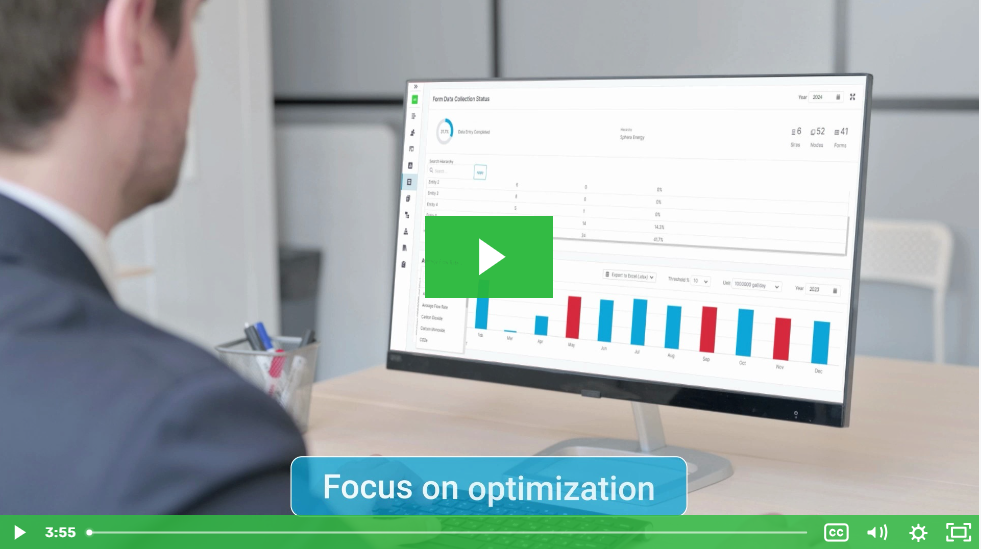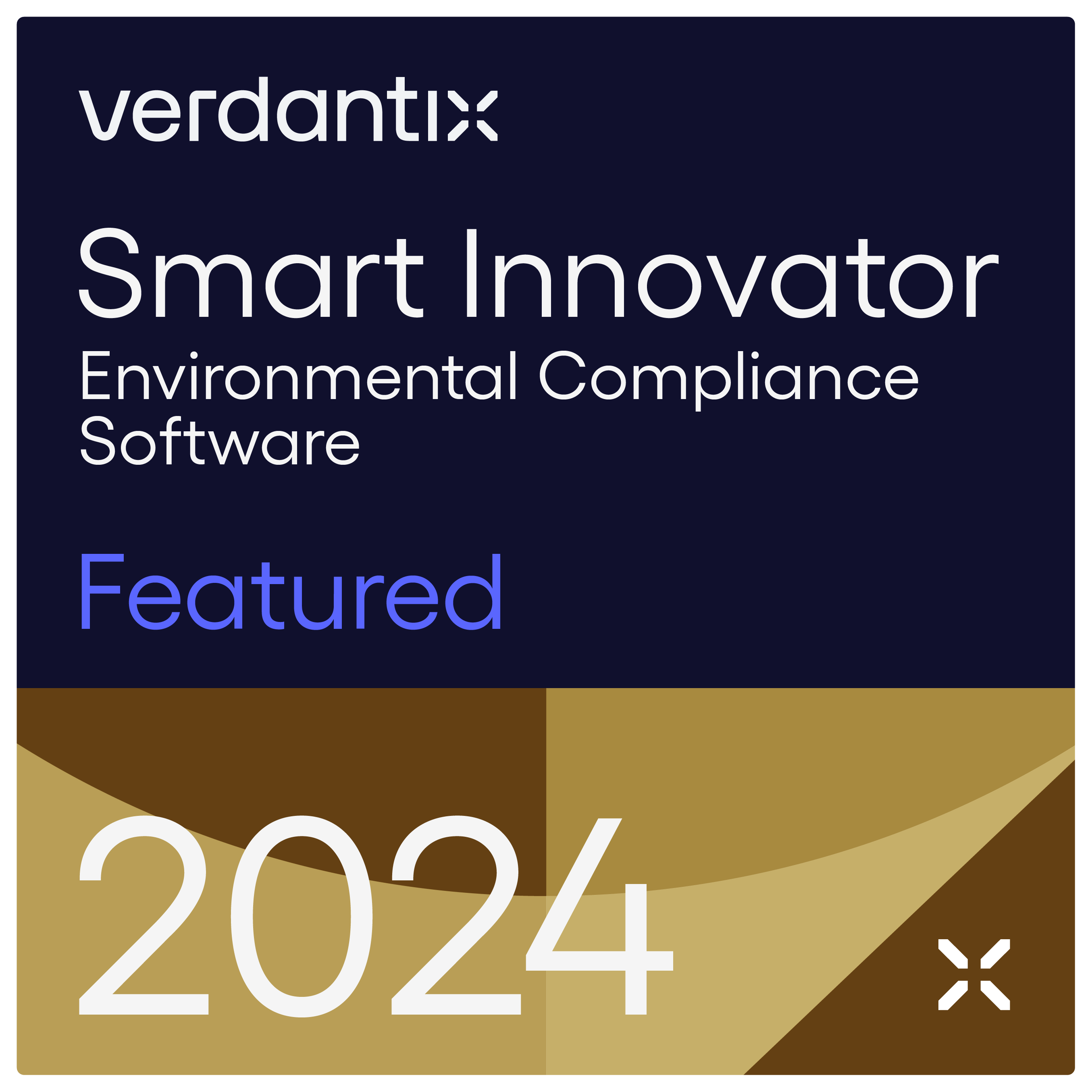The extreme weather around the world is becoming a big problem. Extreme weather events such as floods, forest fires and thunderstorms have increased worldwide in recent years. As of late September 2023, U.S. insured losses due to severe convective storms had exceeded $50 billion for the first time on record for a single year.
To buffer the effects of climate change, a variety of measures must be taken. Reducing greenhouse gas (GHG) emissions is one of the most important. There is no doubt that carbon emissions from the world’s main industries need to decline quickly. And while companies have had to comply with environmental regulations for decades, the sharpened focus on climate change means that environmental accounting has important applications beyond compliance. Companies must learn to manage their GHG emissions efficiently, report them transparently and work actively to reduce them and meet sustainability goals.
Beyond compliance: transforming data into action
Many companies and EHS leaders get stuck on a compliance treadmill, collecting and validating mountains of environmental data for air, water and waste. Compiling endless sustainability and regulatory reports, especially in large multinational organizations, can be a resource-draining process. It’s no wonder so many environment, health and safety (EHS) teams feel exhausted at the end of the reporting cycle.
But here’s the catch: When the data is used only for compliance, companies miss the opportunity to use it for strategic insights. Businesses need to move beyond basic compliance to fulfill sustainability pledges and address broader strategic initiatives, and data provides the foundation for these activities.
The good news? Businesses can achieve compliance and performance improvements with a streamlined effort. The key lies in transforming collected data into actionable insights, and companies can accomplish this with smart software solutions. With the right tools, high-frequency data collection and data-to-information translation become easier. EHS teams can break free from data overload and focus on high-value activities such as:
- Identifying inefficiency hotspots by pinpointing areas for waste reduction, process optimization and energy savings.
- Partnering with operations teams by collaborating on actionable sustainability initiatives with direct impact.
- Making data-driven decisions by gaining insights to inform strategic actions and drive real progress.
By unlocking the power of their data, EHS teams can move beyond compliance fatigue and become champions of sustainability and strategic performance improvement.
The world demands action. ESG, sustainability and data-driven transparency are no longer buzzwords; they are essential elements of business success. Companies must unlock the power of their environmental and operations data to navigate this evolving landscape and thrive.
Unlocking sustainability advantage: 4 key requirements
For companies that want to demonstrate real sustainability progress, we recommend that they ensure their environmental accounting programs include the following four key requirements:
Traceability: Establish a single, verifiable source of environmental data to assess current risks and manage future performance. Consistent data quality is essential for accurate reporting. Choose a solution that offers flexible data collection options, including customizable forms, automated batch processing and drag-and-drop file import.
Transparency: Gain the ability to model emissions calculations for air/GHG, water and waste and view raw measurement data in real time. This level of transparency helps identify upstream and downstream environmental impacts, pinpointing areas for improvement.
Data-driven decisions: Access real-time qualitative and quantitative data to troubleshoot calculations for accuracy and efficiency. Empower EHS leaders to make informed decisions, mitigate risks, reduce non-compliance and predict performance.
Standardized emissions methodologies: Ensure centralized, standardized calculation methodologies for accurate and reliable reporting.
Learn in this video how Sphera’s Environmental Accounting software can help you establish an auditable record for air, water and waste management while reducing your compliance burden.
Unlock the potential, reduce risk and drive performance
Break free from the limitations of data silos and unlock the full potential of your environmental programs. Create value across your organization, minimize compliance and sustainability risks and move beyond mere compliance to impactful performance.
Use smart software solutions. Use SpheraCloud Environmental Accounting. Learn how our software can help create a traceable system for environmental data collection, reduce risk and drive your environmental performance.
Are you ready to move to environmental performance?
Learn more about what SpheraCloud can do for your Environmental Accounting.



